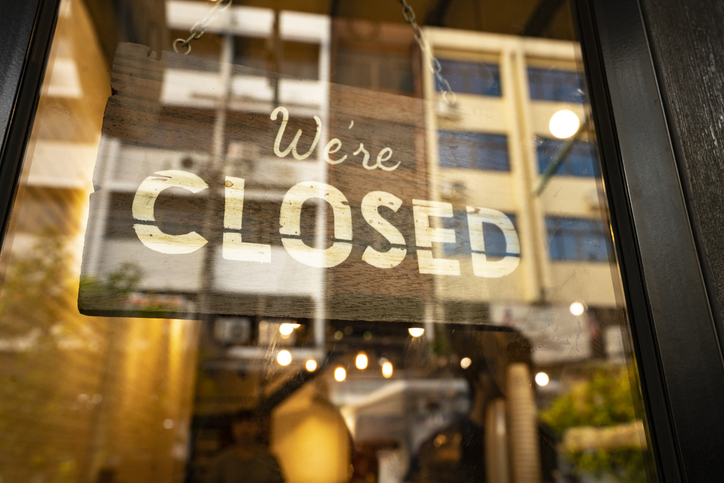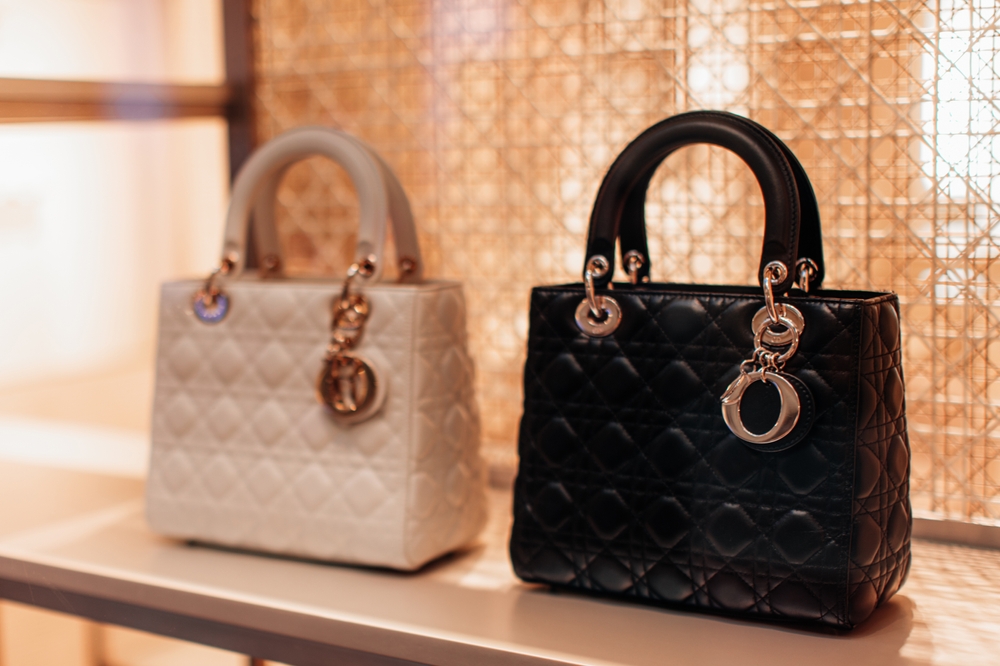Gucci Launches Sustainability Drive as European Fashion Regulation Looms
Makers of luxury goods, whose products are generally less damaging to the environment than fast fashion, are having to work to make their operations greener
Italian luxury brand Gucci is set to launch a hub in Tuscany promoting more durable and less wasteful fashion, as it joins efforts by the sector to meet comingEuropean regulations requiring companies to limit their impact on the environment.
The so-called circular hub will be a research-and-development centre to study ways to improve circularity, including through better durability and recyclability of products, as well as minimising waste and pollution from production to end of life. It will boost transformation in the Italian fashion industry’s production models, said Gucci in a joint release with French parent Kering.
Kering said the hub should promote the use of fewer natural resources and reduce greenhouse-gas emissions. While it didn’t detail how much it expects the hub to benefit the environment, the company did say it would cut the emissions from managing waste generated by Gucci’s leather-goods production by up to 60%.
Kering expects the hub to act as a forerunner for new models that it anticipates will be made obligatory by European regulations in the coming years. Last year, the European Union set out a plan to reduce the environmental damage of the apparel industry, which contributes as much as 8% of total greenhouse-gas emissions, according to United Nations estimates.
All makers of clothes and accessories would be subject to the new measures, even if the higher quality of luxury products and the brands’ typically more local and integrated supply chains tend to make them less environmentally damaging than the products manufactured by fast-fashion companies.
Clothing should be “long-lived and recyclable, and to a great extent made of recycled fibres,” the EU said in its proposed plan. It said labelling should make it easier for consumers to gauge the impact of what they buy.
Legislation in the EU will be formulated to enforce the new measures over the coming years, but some countries are moving ahead on their own. France has introduced a law obliging clothing producers and retailers in France to make clear to consumers the environmental impact of their products, including the amount of recycled material, the use of renewable energy in their production and their recyclability. The regulation applies to larger companies that had annual revenue above €50 million, equivalent to roughly $53 million, as of the beginning of this year and will be applied to smaller players from next year.
Companies are also working to comply with potential supply-chain regulations that could require larger firms operating in the EU to identify, prevent and remedy risks to human rights and the environment in their supply chains, such as minimum age requirements, worker safety, pollution and biodiversity loss.
Some fashion and consumer-goods companies have turned to new technology to help gather data on their supply chains and track material, though transparency remains tough to achieve in many cases. But luxury-goods companies such as Kering have an advantage over brands that sell to more general consumers, analysts at financial services company Jefferies said in a research note this week.
“Luxury brands generally have strong and transparent supply chains and an opportunity to better communicate sourcing quality,” they said.
On the other hand, high-end brands also come under more scrutiny, said Luca Solca, a luxury-goods analyst at brokerage Bernstein.
“Luxury brands have the burden to stand for our better selves, as they embody people’s aspirations and ideals,” Mr. Solca said. “In this respect it is on them to stand up to scrutiny when it comes to respecting the environment and society.”
Waste is a particularly tricky proposition for luxury brands, which have traditionally incinerated unsold stock to avoid discounting their products or diluting their brand image. The EU’s plan envisages requiring retailers to disclose how they deal with unsold textiles and even contemplates a possible ban on destroying unsold or returned clothes.
That would pose a problem for brands that don’t recycle or resell much of their leftover stock. In 2018, U.K. luxury fashion house Burberry said it would stop burning unsold inventory amid pressure from environmental groups, but some peers continue the practice.
“Product destruction can cause consumer backlash if reported in the press, [while] off-price sales are detrimental to brand equity,” Jefferies said. “Thus recycling is the preferable option, yet is an additional cost.”
However, some companies are starting to see the durable nature of luxury products as a life-cycle management opportunity. Kering-owned fashion house Bottega Veneta recently introduced a lifetime warranty on its handbags and the wider industry is increasingly open to allowing resale via secondhand luxury platforms.
Gucci’s circularity hub in Tuscany will involve all Kering facilities in the region, including Gucci’s production sites, raw materials suppliers and finished product producers. The hub’s activities will later be extended to Kering’s other brands, before opening to the wider fashion sector.
“The fashion industry needs to accelerate and launch serious actions to catalyse deep change, rethinking the way we produce and use resources as well,” Kering Chief Sustainability Officer Marie-Claire Daveu said.
 Copyright 2020, Dow Jones & Company, Inc. All Rights Reserved Worldwide. LEARN MORE
Copyright 2020, Dow Jones & Company, Inc. All Rights Reserved Worldwide. LEARN MORE
This stylish family home combines a classic palette and finishes with a flexible floorplan
Just 55 minutes from Sydney, make this your creative getaway located in the majestic Hawkesbury region.
As Paris makes its final preparations for the Olympic games, its residents are busy with their own—packing their suitcases, confirming their reservations, and getting out of town.
Worried about the hordes of crowds and overall chaos the Olympics could bring, Parisians are fleeing the city in droves and inundating resort cities around the country. Hotels and holiday rentals in some of France’s most popular vacation destinations—from the French Riviera in the south to the beaches of Normandy in the north—say they are expecting massive crowds this year in advance of the Olympics. The games will run from July 26-Aug. 1.
“It’s already a major holiday season for us, and beyond that, we have the Olympics,” says Stéphane Personeni, general manager of the Lily of the Valley hotel in Saint Tropez. “People began booking early this year.”
Personeni’s hotel typically has no issues filling its rooms each summer—by May of each year, the luxury hotel typically finds itself completely booked out for the months of July and August. But this year, the 53-room hotel began filling up for summer reservations in February.
“We told our regular guests that everything—hotels, apartments, villas—are going to be hard to find this summer,” Personeni says. His neighbours around Saint Tropez say they’re similarly booked up.
As of March, the online marketplace Gens de Confiance (“Trusted People”), saw a 50% increase in reservations from Parisians seeking vacation rentals outside the capital during the Olympics.
Already, August is a popular vacation time for the French. With a minimum of five weeks of vacation mandated by law, many decide to take the entire month off, renting out villas in beachside destinations for longer periods.
But beyond the typical August travel, the Olympics are having a real impact, says Bertille Marchal, a spokesperson for Gens de Confiance.
“We’ve seen nearly three times more reservations for the dates of the Olympics than the following two weeks,” Marchal says. “The increase is definitely linked to the Olympic Games.”

Getty Images
According to the site, the most sought-out vacation destinations are Morbihan and Loire-Atlantique, a seaside region in the northwest; le Var, a coastal area within the southeast of France along the Côte d’Azur; and the island of Corsica in the Mediterranean.
Meanwhile, the Olympics haven’t necessarily been a boon to foreign tourism in the country. Many tourists who might have otherwise come to France are avoiding it this year in favour of other European capitals. In Paris, demand for stays at high-end hotels has collapsed, with bookings down 50% in July compared to last year, according to UMIH Prestige, which represents hotels charging at least €800 ($865) a night for rooms.
Earlier this year, high-end restaurants and concierges said the Olympics might even be an opportunity to score a hard-get-seat at the city’s fine dining.
In the Occitanie region in southwest France, the overall number of reservations this summer hasn’t changed much from last year, says Vincent Gare, president of the regional tourism committee there.
“But looking further at the numbers, we do see an increase in the clientele coming from the Paris region,” Gare told Le Figaro, noting that the increase in reservations has fallen directly on the dates of the Olympic games.
Michel Barré, a retiree living in Paris’s Le Marais neighbourhood, is one of those opting for the beach rather than the opening ceremony. In January, he booked a stay in Normandy for two weeks.
“Even though it’s a major European capital, Paris is still a small city—it’s a massive effort to host all of these events,” Barré says. “The Olympics are going to be a mess.”
More than anything, he just wants some calm after an event-filled summer in Paris, which just before the Olympics experienced the drama of a snap election called by Macron.
“It’s been a hectic summer here,” he says.

AFP via Getty Images
Parisians—Barré included—feel that the city, by over-catering to its tourists, is driving out many residents.
Parts of the Seine—usually one of the most popular summertime hangout spots —have been closed off for weeks as the city installs bleachers and Olympics signage. In certain neighbourhoods, residents will need to scan a QR code with police to access their own apartments. And from the Olympics to Sept. 8, Paris is nearly doubling the price of transit tickets from €2.15 to €4 per ride.
The city’s clear willingness to capitalise on its tourists has motivated some residents to do the same. In March, the number of active Airbnb listings in Paris reached an all-time high as hosts rushed to list their apartments. Listings grew 40% from the same time last year, according to the company.
With their regular clients taking off, Parisian restaurants and merchants are complaining that business is down.
“Are there any Parisians left in Paris?” Alaine Fontaine, president of the restaurant industry association, told the radio station Franceinfo on Sunday. “For the last three weeks, there haven’t been any here.”
Still, for all the talk of those leaving, there are plenty who have decided to stick around.
Jay Swanson, an American expat and YouTuber, can’t imagine leaving during the Olympics—he secured his tickets to see ping pong and volleyball last year. He’s also less concerned about the crowds and road closures than others, having just put together a series of videos explaining how to navigate Paris during the games.
“It’s been 100 years since the Games came to Paris; when else will we get a chance to host the world like this?” Swanson says. “So many Parisians are leaving and tourism is down, so not only will it be quiet but the only people left will be here for a party.”
This stylish family home combines a classic palette and finishes with a flexible floorplan
Just 55 minutes from Sydney, make this your creative getaway located in the majestic Hawkesbury region.






















